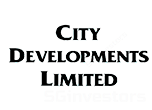Hongkong Land’s new strategy is like CapitaLand’s
Hongkong Land publicized its brand-new approach on Oct 29 release, following its long-awaited calculated evaluation started by Michael Smith, the organization CEO appointed in April. A number of surprises were in store for clients. For one, Hongkong Land announced a few numerical targets for 2035, which indicate a 5.9% CAGR in ebit and dividends per share (DPS) and an 8.7% CAGR in assets under management (AUM).
The usually ultra-conservative realty arm of the Jardine Group, which focused on share buybacks to make worth in the last four years– bought back greater than US$ 627 million ($ 830.1 million) of allotments with little to show for it due to an issue in China– announced dividend targets. Among its techniques is its own version of a model CapitaLand, GLP Capital, ESR, Goodman and the like have adopted in years gone by.
He includes: “By focusing on our competitive strengths and strengthening our calculated partnerships with Mandarin Oriental Hotel Group and our primary office and high-class lessees, we anticipate to speed up development and unlock worth for generations.”
Under the brand-new method, the group will not anymore concentrate on investing in the build-to-sell sector throughout Asia. Instead, the group is anticipated to start reusing resources from the segment into new integrated business estate possibilities as it finishes all existing plans.
“We believe this approach is in line with our assumptions (and will, actually, take place normally anyway in today’s atmosphere), as Hongkong Land has actually long been placed as a profitable property owner in Hong Kong and top-tier centers in Mainland China, with development property accounting for just 17% of its gross asset value,” JP Morgan states.
“While the course is generally positive, we think execution could face some hurdles. As confirmed by the slow-moving progression in Web link REIT’s comparable method (Link 3.0) since 2023, sourcing value-accretive deals is challenging,” JP Morgan states.
A brand-new investment team will be set up to source new investment property financial investments and recognize third-party capital, with the purpose of broadening AUM from US$ 40 billion to US$ 100 billion by 2035. Hongkong Land also prepares to recycle assets (US$ 6 billion from development real estate and US$ 4 billion from selected financial investment properties over the following ten years) right into REITs and other third-party vehicles.
Hongkong Land is valuing its investment portfolio at an indicated capitalisation level of 4.3%. Keppel REIT’s FY2023 results valued its one-third stake in Marina Bay Financial Centre at a 3.5% capitalisation rate and One Raffles Quay at 3.15%. This would make it fairly challenging for Hongkong Land to “REIT” these properties.
Furthermore, the group aims to focus on strengthening calculated collaborations to uphold its development. The group is expected to prolong its collaboration with Mandarin Oriental Hotel Group and even more work together with global forerunners in financial services and luxury goods from amongst its greater than 2,500 occupants.
Smith states: “Building on our 135-year legacy of innovation, exceptional hospitality and longstanding alliances, our passion is to become the lead in developing experience-led city centres in primary Asian gateway cities that improve the way people live and work.”
“The firm kept its DPS flat for the past 6 years without a concrete returns policy, and hence we view the new commitment to supply a mid-single-digit development in annual DPS as a favorable step, especially when most peers are trimming reward or (at best) keeping DPS level. We expect the payout ratio to be at 80-90% in FY2024-2026,” claims an upgrade by JP Morgan.
The new strategy isn’t that different from the old one as development, particularly residential property development in China, has come to a virtual halt. Rather, Hongkong Land will most likely continue to focus on establishing ultra-premium retail real properties in Asia’s gateway metros.
It thinks that the long-term financial investment property growth strategy will make the DPS commitment feasible. “Separately, approximately 20% of capital recycling earnings (US$ 2 billion) may be spent on share buybacks, that amounts 23% of its current market capitalisation. Hongkong Land was energetic in share buyback in 2021-2023 and invested US$ 627 million,” JP Morgan includes.
According to the group, the brand-new strategy intends to “reinforce Hongkong Land’s center capacities, produce development in long-term returning income and supply remarkable gains to shareholders”. It also states essential aspects following the brand-new technique, which is projected to take numerous months to apply, include expanding its financial investment real estates business in Asian gateway cities via creating, operating or handling ultra-premium mixed-use plans to bring in multinational local offices and financial intermediators.
